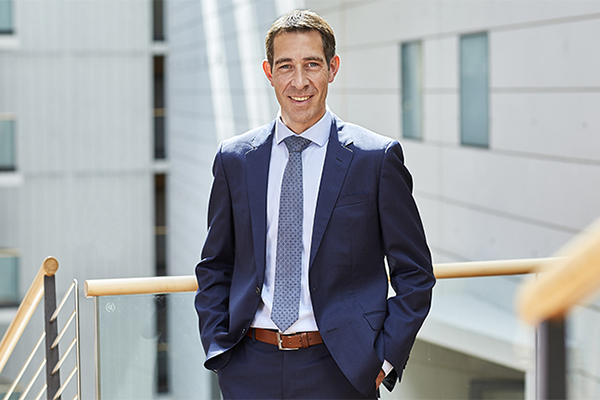Klaus Blaum elected new member of the Leopoldina

The Presidium of the "German Academy of Sciences Leopoldina - National Academy of Sciences" has elected Prof Dr Klaus Blaum, Director at AVA partner the Max Planck Institute (MPI) for Nuclear Physics and Head of the "Stored and Cooled Ions" Department, as a member in recognition of his scientific achievements and personality.
As a director at the MPI for Nuclear Physics, Klaus Blaum heads the department "Stored and Cooled Ions" and is a member of the Faculty of Physics and Astronomy at Heidelberg University. From 2020 to 2023, as one of three Vice Presidents of the Max Planck Society, he was responsible for the Chemical-Physical-Technical Section.
He has received numerous awards for his groundbreaking scientific work with a focus on precision experiments on stored and cooled ions. These include the Lise Meitner Prize of the European Physical Society in 2020 and the Otto Hahn Prize of the City of Frankfurt am Main, the Society of German Chemists and the German Physical Society in 2021. He has twice gained an Advanced Grant from the European Research Council. In 2019 he was accepted as an external member of the physics class at the Royal Swedish Academy of Sciences and in 2022 he was admitted to the Heidelberg Academy of Sciences.
The Leopoldina originated in 1652 as a classical scholarly society and now has 1,600 members from almost all branches of science. In 2008, the Leopoldina was appointed as the German National Academy of Sciences and, in this capacity, was invested with two major objectives: representing the German scientific community internationally, and providing policymakers and the public with science-based advice.
The Leopoldina champions the freedom and appreciation of science. It promotes a scientifically enlightened society and the responsible application of scientific insight for the benefit of humankind and the natural world. In its interdisciplinary discourse, the Academy transcends thematic, political and cultural boundaries. It is also an advocate of human rights.
It is the role of the Leopoldina, in co-operation with other national and international organisations, to identify and analyse scientific issues of social importance. The Leopoldina presents its policy recommendations in a scientifically qualified, independent, transparent and prospective manner, ever mindful of the standards and consequences of science.
This article is based on an original article on the Max-Plank-Institut fur Kernphysik Heidelberg website and can be found here